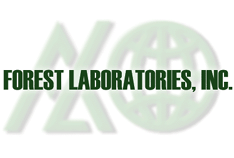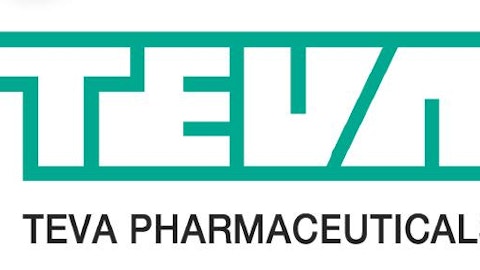The economic cost to the country of 16 million depressed Americans is $44 billion every year. Depression, concomitant with a sedentary lifestyle, is becoming a global phenomenon. It is the leading cause of disability among all medical illnesses. Technically known as Major Depressive Disorder (MDD), depression has a number of medications that are neither very effective nor very safe. Fetzima, a newly FDA-approved drug from Forest Laboratories, Inc. (NYSE:FRX), promises to be a game-changer with its superior safety and efficacy profile, especially since Prozac and Lexapro lost their patent protection.
Fetzima

Prospective Market
The global antidepressant market for the four broad MDD indications is forecasted to be $13.4 billion by 2018, growing at a compounded annual growth rate of 1.8% from 2011-2018. The number of prescriptions continues to increase with rising incidence of the disease, as its exact cause is still unknown. There are few patent-protected safe and efficient drugs in the market. In such a scenario, Fetzima will have strong potential, especially since there is ongoing research to evaluate its effect for other indications of depression.
Forest’s Mental Health Portfolio
Forest Laboratories, Inc. (NYSE:FRX)’s mental health portfolio includes Lexapro, Viibryd, Celexa and Fetzima. Of these, Lexapro, Viibryd and Celexa are used in different indications of depression. Lexapro is primarily used for the acute and maintenance treatment of MDD in adults and adolescents of 12-17 years, and acute GAD in adults. However, the drug lost its patent in March 2012, which affected its performance significantly.
In first quarter ended in June 30, 2013, sales were $28.2 million compared to $110.0 million the same period last year. Viibryd, another drug used for the treatment of MDD in adults, posted sales of $46.1 million in this quarter, up by 23.4% compared to same period last year.
Overall, product sales were positive despite a significant loss from Lexapro. This is due to a sales increase of $294.1 million from next generation products. Net product sales were $796.9 million, increasing by 6% compared to $751.8 million in the prior year quarter. Adjusted net income was $75.5 million, and adjusted EPS was flat at $0.28. As these figures show, Forest Laboratories, Inc. (NYSE:FRX) had a strong mental health portfolio that has suffered some damage climbing over the patent cliff. A successful Fetzima will strengthen this portfolio for quite a few years.
Competitive Landscape
The global antidepressant market has a variety of medications indicated for different symptoms. Of these, Fetzima is likely to compete with marketed products Cymbalta from Eli Lilly & Co. (NYSE:LLY) and Pristiq from Pfizer Inc. (NYSE:PFE).
Cymbalta is indicated for the treatment of MDD in adults and is also used to treat GAD, fibromyalgia, nerve pain in diabetic patients, lower back pain and arthritic pain. In 2Q, 2013, Cymbalta sales were $1.5 billion, increasing by 22% compared to $1.2 billion last year. U.S. sales increased by 27% to $1.2 billion due to increased price, demand and favorable impact of wholesalers. Outside the U.S. sales grew by 4% to $279.8 million due to increased volume.
Overall, the company reported revenues of $5.93 billion, up by 6% due to higher prices and higher volume. The company’s bottom line has significant growth: adjusted net income was $1.2 billion, and adjusted EPS grew by 40% to $1.66 in 2Q, 2013, compared to $0.83 the same period last year. Since the product still has patent protection, one can expect it to continue supporting Eli Lilly & Co. (NYSE:LLY)’s bottom line. A dividend paying company, Eli Lily is a good stock for any healthcare portfolio.




